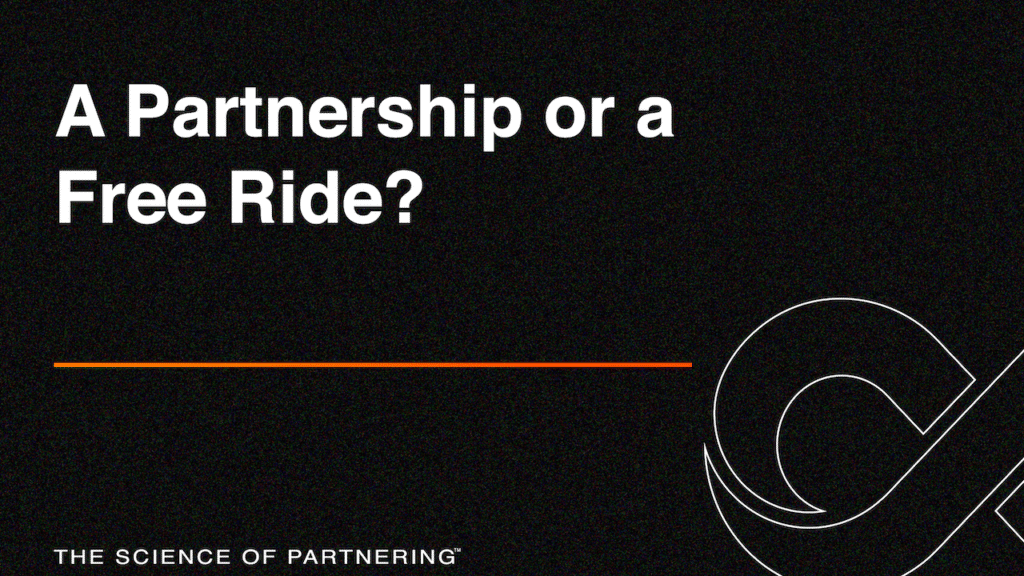The term “partner” is arguably one of the most overused words in business – similar to the word “strategic.” Many business leaders say they are looking for a new “partner.” However, what they mean to say is they are looking for a company that is willing to give them a “free ride.”
I speak to dozens of executives each week who ask me a variation of the question, “Who should I partner with so that I can generate new revenue?” The actual question, however, that their brain is contemplating is, “Which company/executive should I engage so that I can receive a couple of sales (at no cost to me) so we can make our revenue target this quarter?” Does this “taker,” “transactional” approach meet your definition of a partnership?
A true partnership is a relationship between people or entities where resources are exchanged in order to create mutual value. Partnerships are symbiotic relationships that result in all participants being better off as a result of the affiliation. Successful and enduring partnerships produce a multiplier effect where the collaborative combination results in a “1 + 1 = 3+” outcome for the participants.
Unfortunately, many people who say they want a partnership are really looking for a transaction, a short-term exchange with minimal or no cost. These people are looking for high value, but willing to offer little to no value in return. Partnerships, however, require an interdependent collaboration between multiple parties. True partnerships, by the very definition, require that the partnering entities become at least partially dependent on each other for their future success.
Partnerships must offer a unique advantage in order to have lasting significance. If you are trading commodities with another company, you have a transactional relationship, not a partnership. When we order ink for our office printer we are executing a transaction, not building a partnership. As soon as we learn that our ink supplies can be purchased for $.01 cheaper from another trustworthy source, we switch. Why? 100% of the potential value is based on the price of the commodity, not the relationship.
What are the keys to building a powerful partnership? It’s relatively simple—focus on unique values and the relationship. And, for the record, I said, “it’s simple;” I didn’t say, “it’s easy.” There is a HUGE difference! Meaningful partnerships are the result of people delivering significant and unique value that goes far beyond price. If a given opportunity is all about price, people will simply buy, not become a partner. This is called a transaction.
A common and frequently fatal mistake that most business leaders make when forming a “partnership” is that they put almost all of their focus on the “resource” that they are interested in accessing (an entity’s customers, technology, brand, etc.) and almost no focus is given to the greatest portion of the success equation—the relationship. The real determinants of partnership success are dependent on 1) established trust, 2) alignment of cultures & goals, 3) effective communication, and 4) commitment to each other’s success.
Can you imagine being five minutes into a first date and you ask your date if he/she is good at doing laundry, knowing that you absolutely hate this chore? Your date proceeds to say that he/she loves doing laundry. As a matter of fact, it is a form of his/her daily therapy that brings them great joy.
Sorting clothes by color, ironing, using starch, and perfect folds are just a few expert skills that your date possesses. So you yell, “Sold! Would you like to get married?” But you forgot to ask if your date likes the cold (you live in Alaska), is allergic to cats (you have 10), wants kids (you already have five), and if he/she minds that you snore—really loud.
Building great partnerships start with understanding the symbiotic nature that is required to construct enduring relationships. As you contemplate the future development of your organization, ask yourself if a partnership is an attractive path forward. But first, make sure that you understand what a partnership is and what it is not. If you are looking for free access to a valuable resource this is called a free ride—not a partnership.


